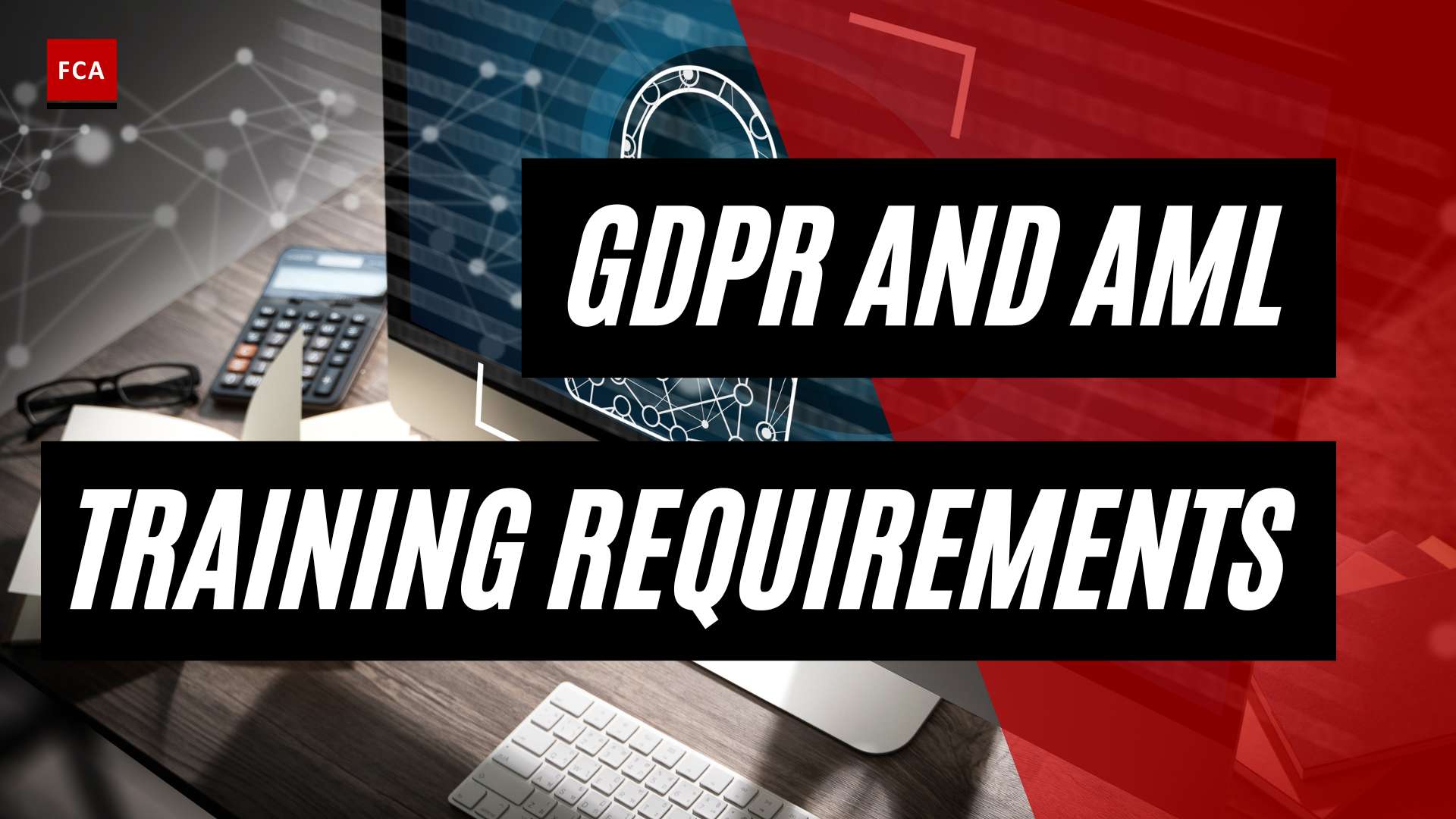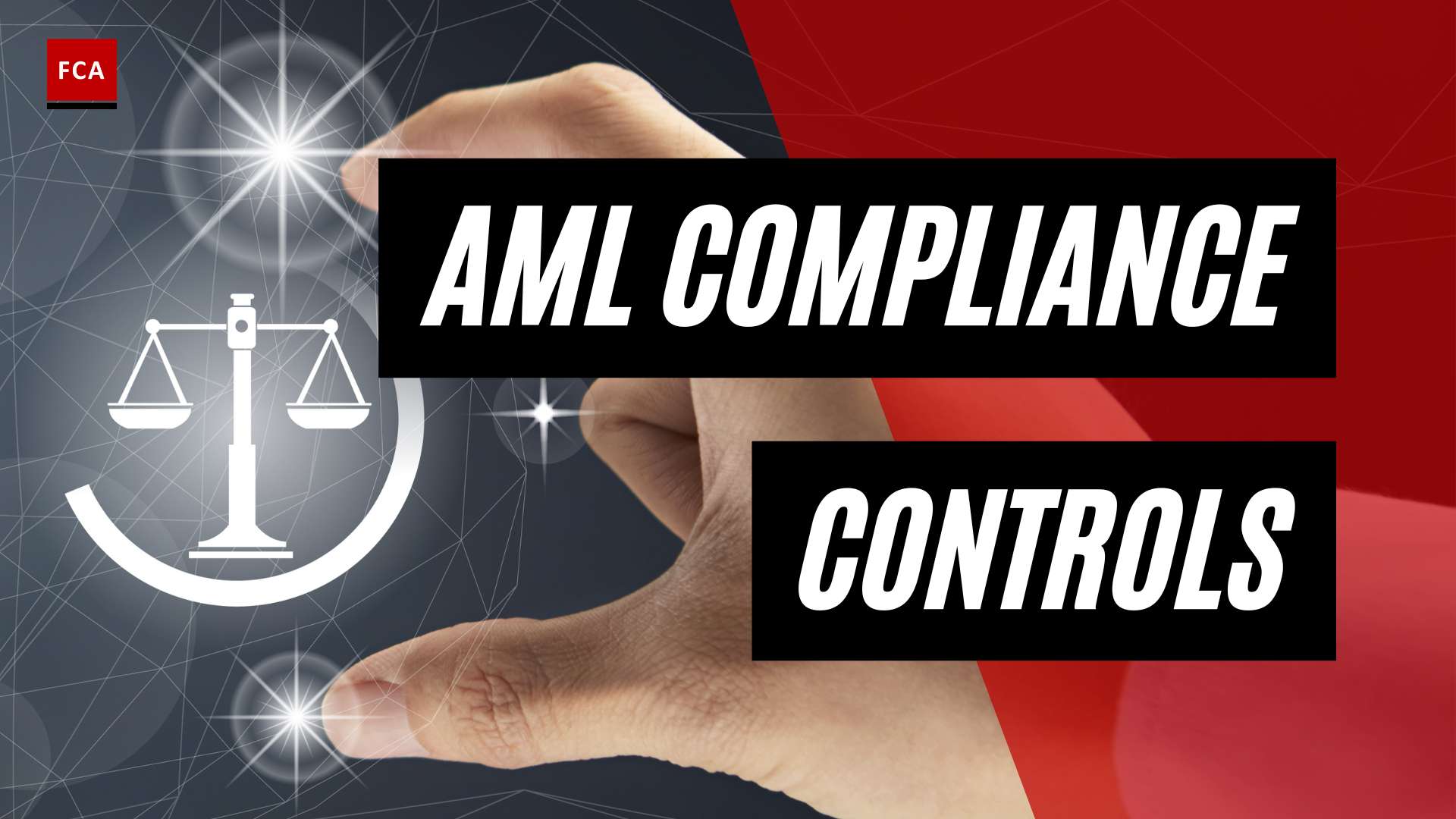AML Regulation in the Gaming Industry
In the gaming industry, compliance with anti-money laundering (AML) regulations is of utmost importance to prevent financial crimes, such as money laundering and terrorist financing. AML policies play a crucial role in maintaining the integrity of the gaming sector and ensuring that it does not become a conduit for illicit funds.
Importance of AML Compliance in Gaming
Compliance with AML regulations is vital for the gaming industry to safeguard against money laundering activities and protect the integrity of the sector. Failure to comply with these regulations can have severe consequences, including reputational damage, loss of customer trust, increased regulatory scrutiny, and financial penalties.
The gaming industry is a target for money laundering due to the high volume of transactions and the presence of numerous small gambling businesses. Illicit cash flows can infiltrate the sector if proper AML measures are not in place. It is crucial for gaming operators to implement robust AML frameworks to detect and deter suspicious financial activities.
By adhering to AML compliance obligations, the gaming industry demonstrates its commitment to preventing financial crimes, preserving national security, and upholding the trust of customers, regulators, and stakeholders. Implementing effective AML policies helps create a safe and transparent environment for players and ensures the integrity of the gaming sector.
Consequences of Non-Compliance
Non-compliance with AML policies in the gaming industry can have severe repercussions. Regulatory bodies have the authority to impose significant penalties and sanctions on gaming operators that fail to meet their AML obligations. These consequences are designed to deter non-compliance and protect the financial system from being exploited for illicit activities.
Penalties for non-compliance can include substantial fines, which may amount to millions of dollars. For instance, fines can reach up to $10 million or twice the amount of funds involved in the transaction, whichever is greater. In some cases, individuals involved in non-compliant activities may also face imprisonment for up to 10 years.
Furthermore, non-compliance can lead to reputational damage, loss of customer trust, and increased regulatory scrutiny. These consequences can have long-lasting effects on the financial stability and operations of gaming businesses. It is essential for gaming operators to prioritize AML compliance to avoid such detrimental outcomes.
To mitigate the risk of non-compliance, gaming operators should establish robust AML programs, conduct thorough customer due diligence, implement effective transaction monitoring systems, and stay abreast of evolving AML regulations. By proactively addressing AML challenges and ensuring compliance, the gaming industry can maintain its integrity and contribute to a secure financial environment.
For further information on AML regulations in the gaming industry, you may refer to our articles on aml regulations for casinos, aml regulations in gaming industry, aml compliance in online gaming, aml obligations for gaming operators, aml laws for online gambling, aml regulations for sports betting, aml regulations for esports betting, aml regulations for in-game purchases, and anti-money laundering in the gaming sector.
AML Policies for the Gaming Industry
To combat the risks of money laundering and other financial crimes in the gaming industry, robust anti-money laundering (AML) policies and procedures are essential. These policies help gaming companies and operators detect, prevent, and report suspicious activities, ensuring compliance with AML regulations. In this section, we will explore three key components of AML policies for the gaming industry: the risk-based approach, customer due diligence (CDD), and transaction monitoring.
Risk-Based Approach
A risk-based approach is a fundamental principle in AML policies for the gaming industry. It involves assessing the level of risk associated with different customers, transactions, and activities. By understanding the risk profile of their operations, gaming companies can allocate resources and implement appropriate control measures to mitigate the risks effectively.
The risk assessment process considers factors such as the type of gaming activity, geographic location, customer base, and the potential for money laundering or terrorist financing. It enables gaming operators to prioritize their AML efforts and focus on areas that pose higher risks.
Customer Due Diligence (CDD)
Customer due diligence (CDD) is a crucial aspect of AML policies in the gaming industry. It involves verifying the identity of customers, understanding their sources of funds, and assessing the potential risks associated with their activities. CDD measures help gaming operators establish a customer’s true identity, prevent the use of false identities, and identify politically exposed persons (PEPs) or high-risk individuals.
Gaming companies should develop comprehensive CDD procedures that include collecting and verifying customer information, conducting ongoing monitoring of customer transactions, and implementing enhanced due diligence for higher-risk customers. By conducting thorough CDD, gaming operators can enhance their ability to detect and prevent money laundering activities within their platforms.
Transaction Monitoring
Transaction monitoring is a key component of AML policies for the gaming industry. It involves the continuous surveillance of customer transactions to identify any suspicious or unusual activities that may indicate potential money laundering or other illicit financial behaviors. Effective transaction monitoring systems employ automated tools and algorithms to analyze transactional data in real-time, flagging any anomalies for further investigation.
Gaming operators should establish robust transaction monitoring mechanisms that consider factors such as the size, frequency, and nature of transactions. By monitoring customer transactions, gaming companies can detect patterns or behaviors that deviate from normal activities, enabling them to take prompt action and report suspicious activities to the relevant authorities.
Implementing a risk-based approach, conducting thorough customer due diligence, and establishing effective transaction monitoring systems are vital elements of AML policies in the gaming industry. By adhering to these policies, gaming companies can play a crucial role in safeguarding the industry against money laundering and maintaining the integrity of the gaming ecosystem. For more information on AML regulations in the gaming industry, you can visit our article on aml regulations in gaming industry.
AML Regulations in Different Jurisdictions
The gaming industry operates under various Anti-Money Laundering (AML) regulations across different jurisdictions. These regulations are designed to combat money laundering and terrorist financing activities within the gaming sector. Let’s explore the AML regulations in some key jurisdictions.
United States
In the United States, the gaming and gambling industry falls under the regulatory requirements of the Bank Secrecy Act (BSA). The Financial Crimes Enforcement Network (FinCEN) has published specific regulations for the gaming industry, such as those released in 2010. The Internal Revenue Service (IRS), in collaboration with FinCEN, investigates BSA violations in casinos in the USA. A robust AML program is essential for gaming operators to meet these regulatory requirements and ensure compliance (Sanction Scanner).
United Kingdom
In the United Kingdom, gaming and gambling companies are subject to AML regulations enforced by the UK Gambling Commission (UKGC). The UKGC emphasizes the importance of customer due diligence (CDD) for gaming operators and requires them to appoint a nominated officer (NO) responsible for AML compliance. Failure to comply with regulations may result in sanctions such as fines, license revocation, and criminal prosecution. AML compliance is crucial to ensure the integrity of the UK gaming industry and protect against illicit financial activities (Sanction Scanner).
European Union
The European Union (EU) has implemented AML regulations for the gaming industry through the Fifth Anti-Money Laundering Directive (5AMLD), introduced in 2018. The directive requires gaming and gambling companies to conduct customer due diligence (CDD) and enhanced due diligence (EDD) measures for high-risk customers, including Politically Exposed Persons (PEPs). Operators are also obligated to monitor and report suspicious transactions to relevant authorities. 5AMLD aims to enhance the EU’s AML framework and strengthen efforts to combat money laundering and terrorist financing in the gaming sector (Sanction Scanner).
Australia
In Australia, the gambling sector is regulated by the Australian Transaction Reports and Analysis Centre (AUSTRAC) under the Anti-Money Laundering and Counter-Terrorism Financing (AML/CTF) Act of 2006. Gambling agencies, bookmakers, casinos, bars, clubs, and providers of electronic gaming machines are subject to these regulations. The AML/CTF obligations include record-keeping, business activity reporting, and the establishment of AML/CTF programs. Compliance with these regulations is essential to mitigate the risk of money laundering and terrorist financing activities within the Australian gaming industry (Sanction Scanner).
Asian Countries
Various Asian countries have implemented AML regulations for the gaming industry. For example, China has regulations overseen by the Ministry of Public Security, which enforces strict reporting requirements and background checks on casino customers. Singapore has established a comprehensive regulatory framework for AML, including enhanced due diligence and suspicious transaction reporting, covering both the casino and non-casino sectors. Each country within Asia has its own set of AML regulations designed to combat money laundering and other illicit financial activities within the gaming industry (Sanction Scanner).
Understanding the AML regulations in different jurisdictions is crucial for gaming operators to ensure compliance and maintain the integrity of the gaming industry. By adhering to these regulations, operators can contribute to the global efforts in combating money laundering and protecting the financial system.
Combating Money Laundering in Gaming
In order to combat money laundering within the gaming industry, various strategies and measures have been implemented. This section explores three key approaches: technological solutions, collaboration and information sharing, and regulatory guidelines.
Technological Solutions
Technology plays a crucial role in combating money laundering within the gaming industry. By implementing advanced software solutions, gaming companies can monitor thousands of transactions in real-time, enhancing their ability to comply with AML obligations and identify suspicious activities more effectively. These software solutions utilize algorithms and data analytics to detect patterns and anomalies that may indicate potential money laundering activities.
The use of smart contracts is another technological solution that can enhance AML policies and procedures in the gaming sector. Smart contracts, based on blockchain technology, can provide transparency and immutability to financial transactions, making it more difficult for illicit funds to be laundered through gaming platforms. This technology offers a potential tool in combating trade-based money laundering (TBML) in the online gaming sector.
Collaboration and Information Sharing
Collaboration and information sharing among gaming companies, regulatory bodies, and law enforcement agencies are vital in combatting money laundering. By working together, stakeholders can share knowledge, experiences, and best practices to develop effective AML strategies. This collaboration can help identify emerging trends and new methods employed by criminals to launder money in the gaming industry.
International cooperation is particularly important, as money laundering activities often transcend borders. Sharing information and intelligence across jurisdictions can assist in identifying and disrupting money laundering networks, ultimately making it more difficult for criminals to exploit the gaming sector for illicit purposes.
Regulatory Guidelines
Regulatory guidelines play a crucial role in shaping AML efforts within the gaming industry. The Financial Action Task Force (FATF) has issued guidelines to help countries and gaming operators understand the AML risks in the industry better. These guidelines provide recommendations for successfully implementing AML policies and procedures to mitigate the risks associated with money laundering in the gaming sector.
Regulators require gaming companies to conduct comprehensive risk assessments, enhance due diligence procedures, and develop effective AML compliance programs to meet the new regulatory requirements. These programs should include robust internal controls, employee training, and ongoing monitoring to identify and report suspicious activities.
By leveraging technological solutions, fostering collaboration, and adhering to regulatory guidelines, the gaming industry can strengthen its AML efforts and mitigate the risks associated with money laundering. Continued vigilance and proactive measures are essential in safeguarding the integrity of the gaming sector and ensuring compliance with AML regulations globally.
AML Challenges and Solutions in Online Gaming
As the popularity of online video games continues to rise across all age groups, the gaming industry faces unique challenges in combating money laundering. Criminals exploit the virtual economies and the value of in-game items and currencies to conduct illicit activities, which poses significant challenges for anti-money laundering (AML) efforts. Let’s explore the specific challenges and solutions in the realm of online gaming.
Virtual Economies and In-Game Items
Online video games have given rise to virtual economies, where players can purchase and trade in-game items and currencies. However, the lack of regulation and oversight in these virtual economies creates an attractive environment for money launderers. Criminals can use real money to acquire virtual assets, such as weapons and unique clothing, and exploit the anonymity provided by the gaming platforms to launder illicit funds (Sanction Scanner).
To address this challenge, regulatory agencies and game developers are increasingly implementing stricter controls on virtual currencies and in-game items. These measures aim to enhance transparency and traceability, making it more difficult for criminals to exploit the gaming environment for money laundering purposes. Additionally, the implementation of robust transaction monitoring systems can help identify suspicious activities and flag them for further investigation.
Lack of Regulation and Oversight
Compared to the stringent AML regulations in traditional financial institutions, the online gaming sector has historically faced a lack of comprehensive regulation and oversight. This has made it an attractive target for criminals looking to launder money. The anonymity provided to players and the use of convertible virtual currencies or in-game items present challenges for AML efforts.
To address this challenge, regulatory bodies are increasingly recognizing the need to extend AML regulations to the gaming sector. By imposing stricter controls, such as know your customer (KYC) procedures, reporting mechanisms like Suspicious Activity Reports (SARs), and enhanced due diligence, authorities aim to minimize the risks associated with money laundering in the online gaming industry. Collaboration between regulatory agencies, game developers, and financial institutions is crucial to ensure effective oversight and enforcement.
KYC Procedures and Fraud Prevention
One of the key challenges in combating money laundering in online gaming is the establishment of robust customer identification processes. The lack of stringent customer due diligence (CDD) procedures makes it easier for criminals to engage in illicit activities without proper scrutiny. Additionally, the theft of credit card information and the use of stolen funds to purchase in-game currencies pose significant fraud risks (Sanction Scanner).
To tackle this challenge, game developers and platforms are increasingly implementing KYC procedures to verify the identity of players. This includes collecting and verifying personal information, such as name, address, and date of birth, to ensure that players are not engaging in money laundering activities. Implementing advanced fraud prevention systems, such as machine learning algorithms, can help detect and prevent suspicious transactions, safeguarding the integrity of the gaming ecosystem.
In conclusion, the online gaming industry faces unique challenges in combating money laundering due to the presence of virtual economies, lack of regulation and oversight, and the need for robust KYC procedures. However, regulatory agencies, game developers, and financial institutions are working together to implement solutions such as stricter controls on virtual currencies, enhanced oversight, and the adoption of KYC procedures. By addressing these challenges, the industry can continue to grow while ensuring compliance with AML regulations and protecting the integrity of the gaming ecosystem.
Enhancing AML Measures in the Gaming Industry
To effectively combat money laundering and ensure compliance with anti-money laundering (AML) regulations in the gaming industry, it is imperative for gaming companies to enhance their AML measures. This involves implementing comprehensive risk assessments, conducting due diligence procedures, and establishing robust AML compliance programs.
Comprehensive Risk Assessments
Conducting comprehensive risk assessments is a vital step in identifying and managing AML risks within the gaming industry. These assessments help gaming companies understand the potential vulnerabilities and threats they may face, allowing them to implement appropriate control measures. By assessing factors such as customer profiles, transaction volumes, and geographic risks, gaming companies can develop a risk-based approach to AML compliance (Sanction Scanner).
Key elements of comprehensive risk assessments include:
- Evaluating the nature and complexity of gaming activities
- Assessing the potential for money laundering and terrorist financing
- Identifying high-risk areas and implementing enhanced due diligence measures
- Continuously monitoring and adapting to changing risks over time
By conducting regular and thorough risk assessments, gaming companies can proactively identify and mitigate potential AML risks, ensuring the integrity of their operations and compliance with AML regulations.
Due Diligence Procedures
Implementing robust due diligence procedures is crucial for gaming companies to effectively prevent money laundering and terrorist financing activities. Due diligence measures involve gathering and verifying customer information to ensure the legitimacy of their transactions and detect any suspicious activities.
Key components of due diligence procedures include:
- Know Your Customer (KYC): Gaming companies need to implement stringent KYC procedures to verify the identity of their customers, assess their risk profiles, and monitor their transactions. This includes verifying customer identification documents, conducting background checks, and assessing the source of funds.
- Enhanced Due Diligence (EDD): For high-risk customers, such as those with large transactions or politically exposed persons (PEPs), gaming companies should conduct enhanced due diligence. This involves conducting more extensive investigations and monitoring their activities more closely to mitigate potential risks.
By implementing robust due diligence procedures, gaming companies can better detect and prevent illicit activities, ensuring compliance with AML regulations and protecting their businesses from financial crimes.
AML Compliance Programs
Establishing comprehensive AML compliance programs is crucial for gaming companies to ensure ongoing compliance with AML regulations. These programs provide a framework for implementing policies, procedures, and controls that are tailored to the specific risks faced by the gaming industry.
Key components of AML compliance programs include:
- Policies and Procedures: Developing and implementing clear and comprehensive AML policies and procedures that align with regulatory requirements and industry best practices. These policies should cover aspects such as customer due diligence, transaction monitoring, record-keeping, and reporting suspicious activities.
- Training and Awareness: Providing regular training and awareness programs to employees to ensure they understand the risks of money laundering, recognize suspicious activities, and comply with AML policies and procedures.
- Internal Controls and Monitoring: Implementing robust internal controls and monitoring mechanisms to detect and prevent potential money laundering activities. This includes transaction monitoring systems, automated alerts for suspicious activities, and regular internal audits.
- Reporting and Record-Keeping: Establishing procedures for reporting and documenting suspicious activities, as required by AML regulations. Gaming companies should maintain clear records of customer due diligence, transaction histories, and any suspicious activity reports.
By establishing comprehensive AML compliance programs, gaming companies can demonstrate their commitment to preventing money laundering, protect their businesses from potential risks, and maintain a strong reputation within the industry.
As the gaming industry continues to evolve, enhancing AML measures will be crucial to meet the evolving regulatory landscape and combat financial crimes effectively. By prioritizing comprehensive risk assessments, due diligence procedures, and AML compliance programs, gaming companies can contribute to a safer and more secure gaming environment while ensuring compliance with AML regulations.
Future of AML in the Gaming Industry
As the gaming industry continues to evolve, so does the regulatory landscape surrounding anti-money laundering (AML) efforts. Regulators and gaming operators are recognizing the need for robust AML policies and procedures to combat financial crimes effectively. In this section, we will explore the future of AML in the gaming industry, focusing on the evolving regulatory landscape, technology advancements, and the continued focus on AML efforts.
Evolving Regulatory Landscape
The gaming industry has become a focal point for AML efforts due to its susceptibility to exploitation for money laundering purposes. Regulators have taken notice and are imposing stricter AML policies and regulations to safeguard against financial crimes and preserve national security (Youverify). Gaming operators must stay abreast of the evolving regulatory landscape to ensure compliance with AML obligations. This includes understanding and adhering to AML regulations for casinos, AML regulations in the gaming industry, and AML laws for online gambling.
To address the growing concerns of money laundering activities, gaming companies need to strengthen their AML frameworks and collaborate with regulatory entities. This proactive approach will help create a safer and more secure gaming environment for both operators and players. By actively participating in regulatory discussions and implementing best practices, the gaming industry can contribute to the development of effective AML measures.
Technology Advancements
Technology plays a crucial role in combating money laundering within the gaming industry. Advancements in software and data analytics enable gaming companies to monitor thousands of transactions in real-time, enhancing their ability to identify and report suspicious activities. By leveraging technology, gaming operators can better comply with AML obligations, detect patterns of illicit behavior, and mitigate the risk of money laundering (Vector Solutions).
Additionally, the use of artificial intelligence and machine learning algorithms can help identify unusual transaction patterns and flag potentially illicit activities. These technological advancements empower gaming operators to stay one step ahead of money launderers and strengthen their AML defenses.
Continued Focus on AML Efforts
The fight against money laundering in the gaming industry is an ongoing battle. Regulators, gaming operators, and industry associations are committed to maintaining a strong focus on AML efforts to combat financial crimes effectively. The Financial Action Task Force (FATF) has issued guidelines to help countries and gaming operators understand the AML risks in the industry better. These guidelines provide recommendations for successfully implementing AML policies and procedures to mitigate the risks associated with money laundering in the gaming sector (Vector Solutions).
To enhance AML measures, gaming companies should conduct comprehensive risk assessments, enhance due diligence procedures, and develop effective AML compliance programs. These proactive steps will not only help meet the new regulatory requirements but also contribute to a more secure gaming environment (Vector Solutions). By continuously improving AML efforts and collaborating with regulatory bodies, the gaming industry can stay ahead of emerging money laundering threats and ensure the integrity of its operations.
In conclusion, the future of AML in the gaming industry involves an evolving regulatory landscape, technology advancements, and a continued focus on AML efforts. By embracing these developments and implementing robust AML frameworks, the gaming industry can effectively combat money laundering and uphold the highest standards of integrity and security.








